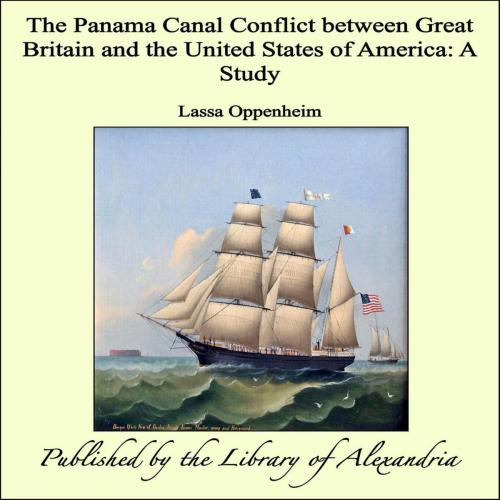The Panama Canal Conflict between Great Britain and the United States of America: A Study
Nonfiction, Religion & Spirituality, New Age, History, Fiction & Literature| Author: | Lassa Oppenheim | ISBN: | 9781465560803 |
| Publisher: | Library of Alexandria | Publication: | July 29, 2009 |
| Imprint: | Library of Alexandria | Language: | English |
| Author: | Lassa Oppenheim |
| ISBN: | 9781465560803 |
| Publisher: | Library of Alexandria |
| Publication: | July 29, 2009 |
| Imprint: | Library of Alexandria |
| Language: | English |
The Panama Canal conflict is due to the fact that the Governments of Great Britain and the United States do not agree upon the interpretation of Article III, No. 1, of the Hay-Pauncefote Treaty of September 18, 1901, which stipulates as follows:— "The Canal shall be free and open to the vessels of commerce and of war of all nations..., on terms of entire equality, so that there shall be no discrimination against any such nation, or its citizens or subjects, in respect of the conditions and charges of traffic, or otherwise. Such conditions and charges of traffic shall be just and equitable." By Section 5 of the Panama Canal Act of August 24, 1912, the President of the United States is authorised to prescribe, and from time to time to change, the tolls to be levied upon vessels using the Panama Canal, but the section orders that no tolls whatever shall be levied upon vessels engaged in the coasting trade of the United States, and also that, if the tolls to be charged should be based upon net registered tonnage for ships of commerce, the tolls shall not exceed one dollar and twenty-five cents per net registered ton nor be less, for other vessels than those of the United States or her citizens, than the estimated proportionate cost of the actual maintenance and operation of the Canal[1] . Now Great Britain asserts that since these enactments set forth in Section 5 of the Panama Canal Act are in favour of vessels of the United States, they comprise a violation of Article III, No. 1, of the Hay-Pauncefote Treaty which stipulates that the vessels of all nations shall be treated on terms of entire equality
The Panama Canal conflict is due to the fact that the Governments of Great Britain and the United States do not agree upon the interpretation of Article III, No. 1, of the Hay-Pauncefote Treaty of September 18, 1901, which stipulates as follows:— "The Canal shall be free and open to the vessels of commerce and of war of all nations..., on terms of entire equality, so that there shall be no discrimination against any such nation, or its citizens or subjects, in respect of the conditions and charges of traffic, or otherwise. Such conditions and charges of traffic shall be just and equitable." By Section 5 of the Panama Canal Act of August 24, 1912, the President of the United States is authorised to prescribe, and from time to time to change, the tolls to be levied upon vessels using the Panama Canal, but the section orders that no tolls whatever shall be levied upon vessels engaged in the coasting trade of the United States, and also that, if the tolls to be charged should be based upon net registered tonnage for ships of commerce, the tolls shall not exceed one dollar and twenty-five cents per net registered ton nor be less, for other vessels than those of the United States or her citizens, than the estimated proportionate cost of the actual maintenance and operation of the Canal[1] . Now Great Britain asserts that since these enactments set forth in Section 5 of the Panama Canal Act are in favour of vessels of the United States, they comprise a violation of Article III, No. 1, of the Hay-Pauncefote Treaty which stipulates that the vessels of all nations shall be treated on terms of entire equality















